
Horse Colic: Listening to and Interpreting Gut Sounds
Dr. Christine Johnson of Leclair Equine, in Berthoud, Colorado, demonstrates how to listen for gut sounds.


Dr. Christine Johnson of Leclair Equine, in Berthoud, Colorado, demonstrates how to listen for gut sounds.
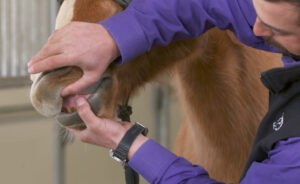
A veterinarian describes how to safely check your horse’s capillary refill time.
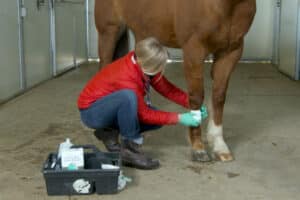
Follow these steps to clean and treat minor horse wounds.
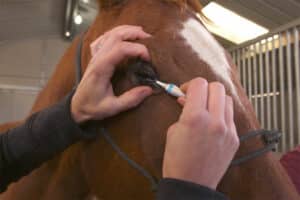
Administering eye medication can be tricky, but these tips make the task easier.
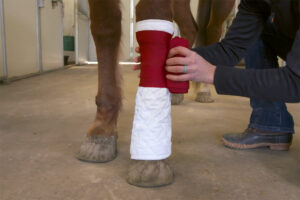
A veterinarian demonstrates how to use a standing wrap to protect and prevent injury on your horse’s legs.
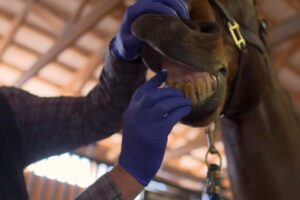
Knowing how to look inside your horse’s mouth safely can help you catch problems early.

When used correctly, nerve blocks can help determine the location of discomfort in a horse.

Wrapping a hock can be difficult, but these tips from a veterinarian can help.

A veterinarian explains how to increase a horse’s weight safely.

Sand accumulation in a horse’s gastric system is cause for concern; this method can help you detect it.

Identifying lameness early is key to preventing long-term damage.

These tips can provide an interim solution to dealing with a loose shoe while you wait for the farrier.
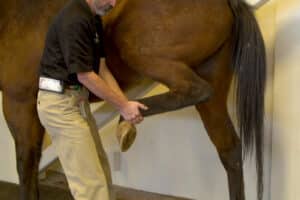
A veterinarian evaluates a horse’s soundness using flexion tests.

A veterinarian explains the process of using poultice and wrapping a hoof.

Addressing hoof abscesses early can help horses have the best outcome.

Learn how to give your horse oral medications safely.
Stay on top of the most recent Horse Health news with